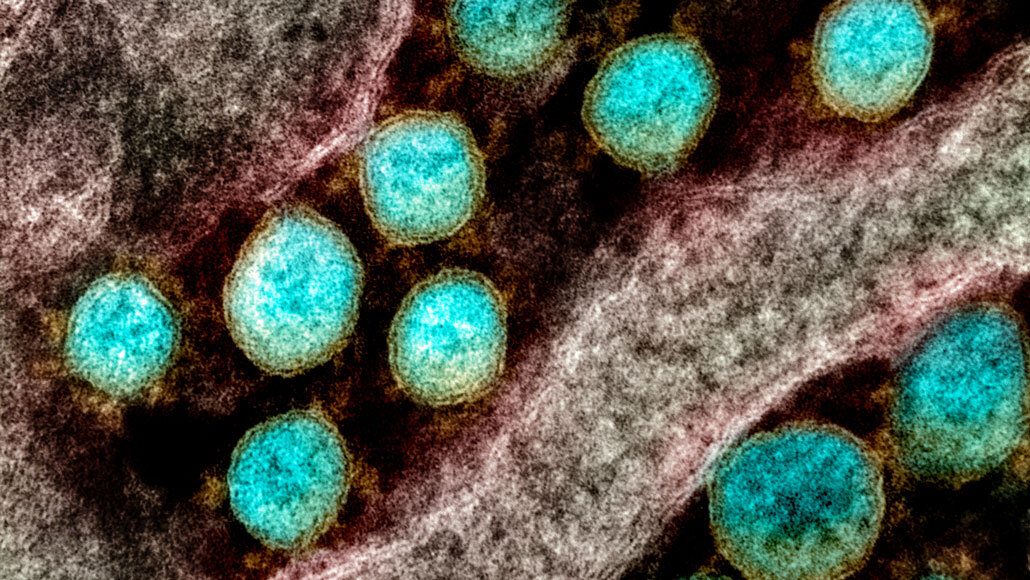T cells may help COVID-19 patients — and people never exposed to the virus
How important certain immune cells are for those fighting the coronavirus remains unclear

Scientists found certain immune cells that target the coronavirus (seen in this transmission electron micrograph) in the blood of people who had recovered from a coronavirus infection as well as in the blood of some people who had never been exposed to the virus.
NIAID








